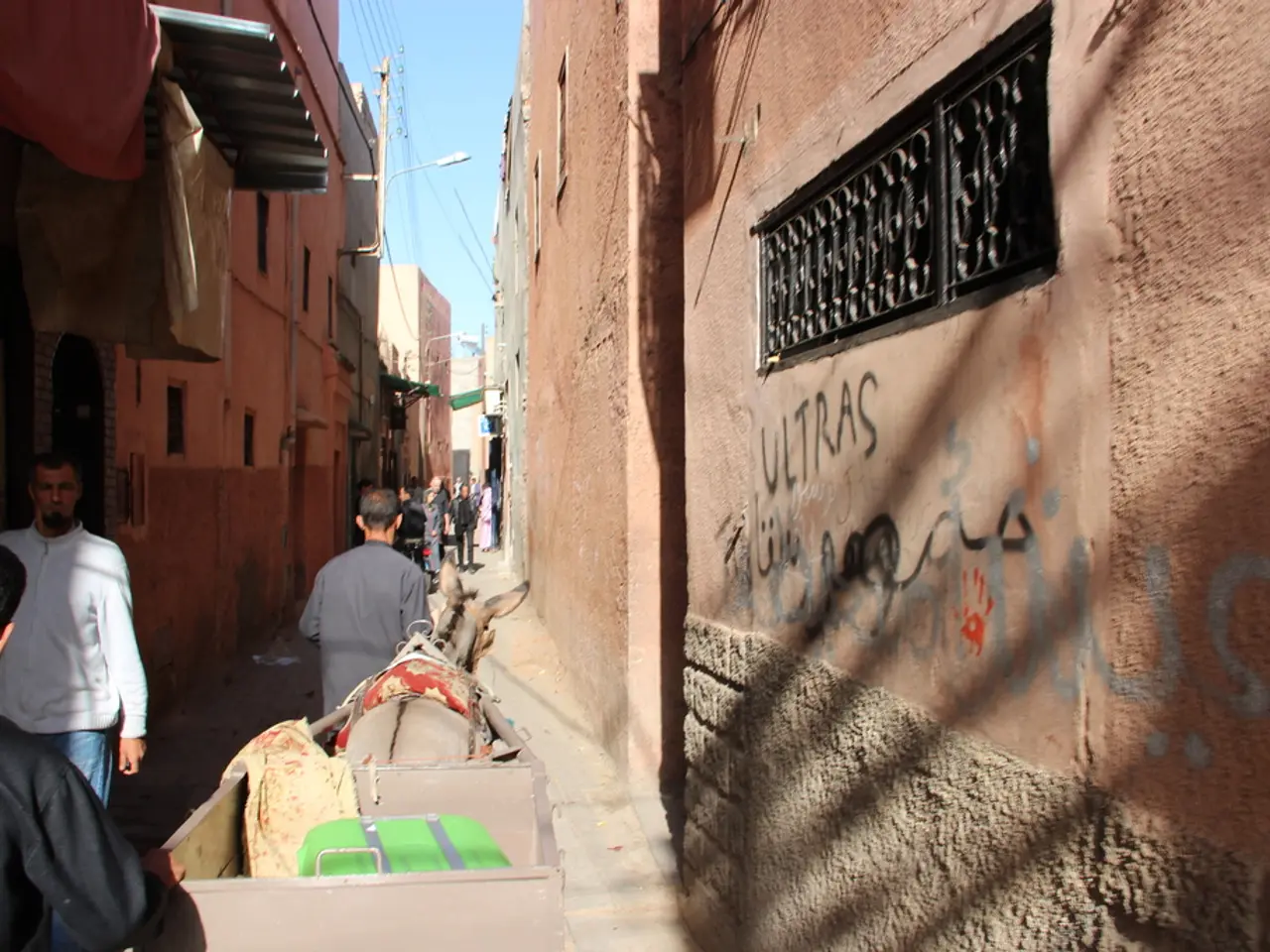Traveling to Thailand and Cambodia during border conflicts: An assessment of safety?
In the midst of escalating violence between Cambodian and Thai combatants, the Thailand-Cambodia border has become a hotspot of conflict. The violence has resulted in at least 14 deaths and injuries to dozens, with tens of thousands forced to flee their homes.
The European Union Commission, through its spokesperson Anouar El Anouni, has expressed deep concern over the situation. The statement was made on social platform X. France, too, has voiced its concern, expressing deep concern over the armed clashes on the Cambodia-Thailand border on July 24, resulting in casualties.
The current travel advisory for the region, as of late July 2025, advises travelers to exercise increased caution overall with a specific "Level 4: Do Not Travel" warning for areas within 50 kilometers of the shared border due to ongoing military conflict. This conflict involves rocket and artillery fire, civilian casualties, and the displacement of hundreds of thousands of people stemming from territorial disputes including over the Preah Vihear temple.
Routine land border crossings between Thailand and Cambodia have largely been suspended since June 29, 2025, with intermittent closures continuing to affect travel. While heightened security measures are in place in Thailand’s eastern provinces near the border, travel in other parts of Thailand remains normal.
A positive development occurred on July 28, 2025, when Cambodia and Thailand agreed to an immediate and unconditional ceasefire mediated by Malaysia, attended by representatives from the US and China, raising hope for safer travel in the near future.
In light of the situation, the United States has upped its travel advisory status for the region to Level 4 - Do Not Travel due to ongoing fighting between Thai and Cambodian forces within 50 km of the border. The Foreign Ministry of France also urges both sides to cease fighting and resolve their differences peacefully, in accordance with international law.
Local volunteer groups in Siem Reap and Oddar Meanchey provinces are distributing essential items to refugees and those heading towards the fighting. Meanwhile, streets up to 100km from active combat zones are said to be emptier than usual due to the violence.
For those affected by the situation, French diplomatic missions are available to assist. Additionally, journeys cancelled in the wake of government Do Not Travel advisories may be eligible for insurance cover, depending on the policy.
The origins of the dispute can be traced back to the French colonial map from 1907. The clashes along the border are reported to be larger than previous outbreaks of violence. The EU Commission calls for restraint, urging both sides to de-escalate and resolve disputes through dialogue and other peaceful means in line with international law, including the UN Charter.
In an extraordinary measure, a Buddhist temple in Thailand's northeast constructed a defence bunker using precast concrete drainage pipes to shelter a few monks and local villagers.
As the situation continues to evolve, it is crucial for travellers to stay informed and heed the travel advisories issued by their respective governments.
- Volunteer groups in Siem Reap and Oddar Meanchey provinces are distributing essential items to refugees and those displaced by the conflict.
- The foreign ministry of France is appealing to both sides to cease fighting and resolve their differences peacefully, in accordance with international law.
- The recent violence between Cambodian and Thai combatants has resulted in a travel advisory from the United States, advising citizens not to travel to the region due to ongoing fighting.
- The origins of the current conflict can be traced back to a French colonial map from 1907, and the clashes along the border are reported to be larger than previous outbreaks of violence.
- In response to the deteriorating situation, the EU Commission is calling for restraint and urging both sides to de-escalate and resolve disputes through dialogue and other peaceful means in line with international law, including the UN Charter.




